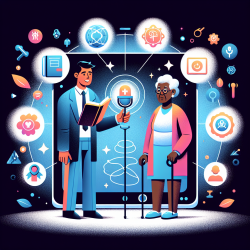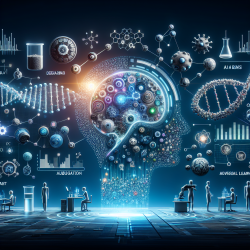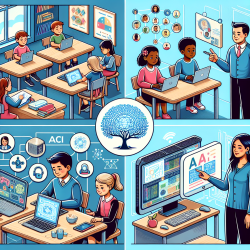Introduction
The intersection of artificial intelligence (AI) and healthcare is a rapidly evolving frontier that holds immense promise for transforming disease diagnosis and patient care. As a practitioner, understanding and implementing AI-driven techniques can significantly enhance your diagnostic capabilities and patient outcomes. This blog delves into the insights from the research article "Artificial intelligence in disease diagnosis: a systematic literature review, synthesizing framework and future research agenda" and explores how these findings can be applied in practice.
The Power of AI in Disease Diagnosis
AI techniques, particularly machine learning and deep learning, have shown remarkable potential in diagnosing a wide range of diseases, from Alzheimer's and cancer to diabetes and chronic heart conditions. By analyzing vast datasets from medical imaging and patient records, AI can identify patterns and anomalies that might be missed by human observation alone.
The research highlights AI's role in improving the accuracy and speed of diagnoses. For instance, AI algorithms have been trained to analyze medical images such as MRIs and CT scans, providing insights into conditions like Alzheimer's and various cancers. These tools not only enhance diagnostic precision but also reduce the time required for analysis, allowing for quicker intervention and treatment.
Implementing AI in Practice
For practitioners, integrating AI into diagnostic processes involves several key steps:
- Data Collection and Preparation: High-quality, representative data is crucial for training AI models. Practitioners should focus on collecting comprehensive datasets that include diverse patient demographics and medical histories.
- Choosing the Right AI Tools: Depending on the specific diagnostic needs, different AI models such as Convolutional Neural Networks (CNNs) for image analysis or Recurrent Neural Networks (RNNs) for sequential data can be employed.
- Continuous Learning and Adaptation: AI models should be regularly updated with new data to improve their accuracy and adapt to emerging diagnostic challenges.
Challenges and Considerations
While AI offers significant benefits, there are challenges to consider. Data privacy and security are paramount, especially when dealing with sensitive patient information. Additionally, practitioners must be cautious of biases in AI models that can arise from unrepresentative training data.
Moreover, the integration of AI should complement, not replace, the expertise of healthcare professionals. AI can provide valuable insights, but the final diagnostic decision should always involve human judgment and clinical expertise.
Future Research and Opportunities
The research article outlines several avenues for future exploration, including the development of more robust AI models that can handle diverse and complex datasets. Practitioners are encouraged to engage in ongoing research and collaboration with AI specialists to refine these technologies and expand their applications in healthcare.
Conclusion
AI is set to revolutionize disease diagnosis, offering tools that enhance accuracy, efficiency, and patient outcomes. By embracing these technologies, practitioners can stay at the forefront of medical innovation and provide better care for their patients. To delve deeper into the research and explore these findings in detail, read the original research paper.










